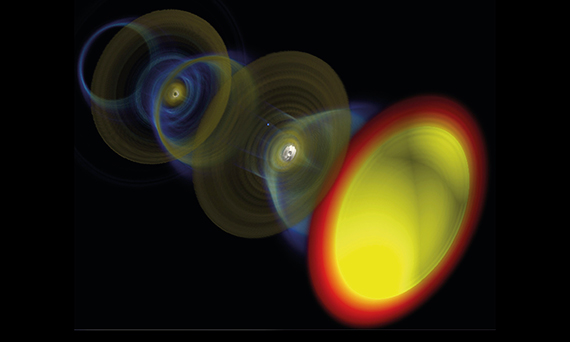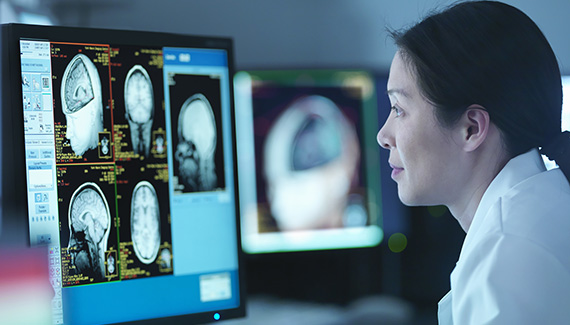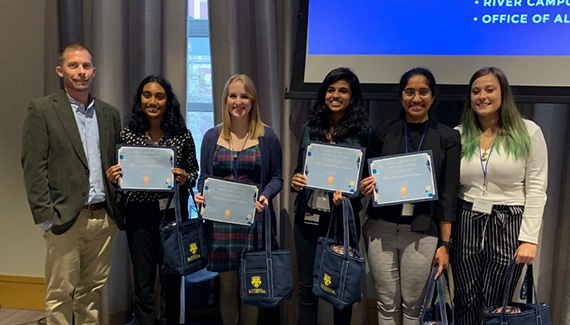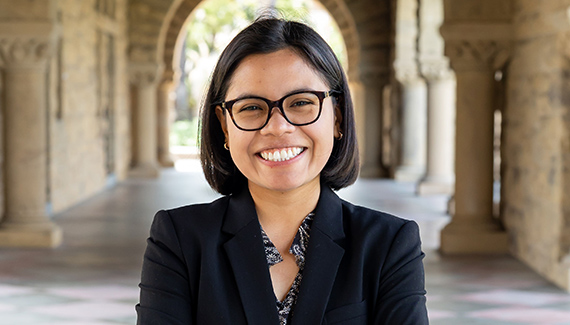|
|
|
|
 (Image credit: Bernardo Malaca)
Scientists propose super-bright light sources powered by quasiparticlesAn international team of scientists is rethinking the basic principles of radiation physics with the aim of creating super-bright light sources. In a new study published in Nature Photonics, researchers from Rochester, the Instituto Superior Técnico in Portugal, the University of California, Los Angeles, and the Applied Optics Laboratory in France proposed ways to use quasiparticles to create light sources as powerful as the most advanced ones in existence today, but much smaller.
Quasiparticles are formed by many electrons moving in sync. They can travel at any speed—even faster than light—and withstand intense forces, like those near a black hole.
“The most fascinating aspect of quasiparticles is their ability to move in ways that would be disallowed by the laws of physics governing individual particles,” says John Palastro, a senior scientist at the Laboratory for Laser Energetics, an assistant professor in the Department of Mechanical Engineering, and an associate professor at the Institute of Optics.
Read more about the experiments.
What are the ethics of AI in medicine?
(Getty Images)
Artificial intelligence is increasingly common in medicine to improve diagnosis and treatment of diseases, and to avoid unnecessary screening for patients. But AI medical devices could also harm patients and worsen health inequities if they are not designed, tested, and used with care, according to an international task force that included a University of Rochester philosophy professor and Medical Center bioethicist.
Jonathan Herington was a member of the AI Task Force of the Society for Nuclear Medicine and Medical Imaging, which lays out recommendations on how to ethically develop and use AI medical devices in two papers published in the Journal of Nuclear Medicine. In short, the task force calls for increased transparency about the accuracy and limits of AI and outlines ways to ensure all people have access to AI medical devices that work for them—regardless of their race, ethnicity, gender, or wealth.
While the burden of proper design and testing falls to AI developers, health care providers are ultimately responsible for properly using AI and shouldn’t rely too heavily on AI predictions when making patient care decisions.
“There should always be a human in the loop,” says Herington.
Five talks take prizes at AS&E Graduate Research Day 2023
(University of Rochester photo)
Congratulations to all the graduate students from Arts, Sciences & Engineering (AS&E) who presented their work at Graduate Research Day last Friday! More than 40 students successfully presented 10-minute talks on their work and more than 100 people stopped by to listen and support the presenters. In the morning, the lineup of roundtable discussions covered grant writing and publishing tips, job search advice, how to pursue postdoc opportunities, and more. The day culminated in a networking reception, with awards presented by Dean of Graduate Education in AS&E Nick Vamivakas.
The five winners of best talks for the judging sessions were:
- Oviya Mohan, brain and cognitive sciences, “Experimental emergence of conventions in humans”
- Lynn Sidor, biology, “Opticoli: Self-assembled bacterial micolenses for optical applications”
- Sanjana Kapisthalam, brain and cognitive sciences, “Looking for details: Fine-grained visual search at foveal scale”
- Zoe Stearns, brain and cognitive sciences, “Temporal dynamics of peri-microsaccadic perceptual modulations in the foveola”
- Nitya Ravi, physics and astronomy, “Measuring dark matter in spiral galaxies”
Rochester student receives NIH Undergraduate Scholarship At just five years old, Dabne Herrera Guerra ’25 already had an interest in biology and was picking up books like Molecular Biology of the Cell. Now, as a biochemistry major, she is Rochester’s most recent National Institutes of Health Undergraduate Scholarship recipient. At just five years old, Dabne Herrera Guerra ’25 already had an interest in biology and was picking up books like Molecular Biology of the Cell. Now, as a biochemistry major, she is Rochester’s most recent National Institutes of Health Undergraduate Scholarship recipient.
Herrera Guerra arrived at Rochester as a transfer student with an impressive record of research participation at Stanford University and Lawrence Berkeley National Laboratory. “My fervent passion for my field motivated me to apply to diverse research opportunities at an early stage of my career,” she says.
Learn more about her achievements.
SMD GEPA Philosophy Meeting and Awards CeremonyMonday, October 30, 3–6 p.m.
Sarah Flaum Atrium, 415 Elmwood Ave.
This ceremony celebrates the achievements of School of Medicine and Dentistry graduate students, postdocs, faculty, and staff. A reception will follow. Register to attend.
UNYTE Virtual Scientific Session: Advancing translational science in rural health researchWednesday, November 1, 9–11 a.m. EDT
Virtual
Researchers from across New York State will explore innovative strategies for overcoming barriers to the participation of rural populations in health research. The event features a keynote presentation by Xinzhi Zhang, Chief of Health Inequities and Global Health Branch at the Center for Translational Research and Implementation Science at the National Heart, Lung, and Blood Institute. See the full agenda and register.
Webinar: Human Research Protections Program Educational ForumTuesday, October 31, noon–1 p.m.
Virtual
In this session, staff from the Office for Human Subject Protection and Office of Research IT will review methods for appropriately obtaining consent from remote study subjects, and offer updates to institutional guidance and processes for utilizing REDCap to obtain eConsent. Register to participate.
28th Annual Wilmot Cancer Institute Scientific SymposiumThursday, November 2, 7:45 a.m.–4:15 p.m.
Class of ’62 Auditorium, 601 Elmwood Ave.
The symposium brings together scientists working in basic, translational, and clinical cancer research to share exciting findings, new projects, and success stories. This year’s keynote speaker is Ned Sharpless, former director of the National Cancer Institute and a professor of medicine at the UNC Lineberger Comprehensive Cancer Center. Sharpless was appointed acting director of the US Food and Drug Administration in 2019 and served as director of the National Cancer Institute from 2017 to 2022. The program will also include a presentation of the annual Davey Award, plenary talks by Wilmot members, trainee research presentations, and a scientific poster competition. Learn more and register to attend.
Webinar: Social media recruitment with Meta restrictionsMonday, November 6, noon–1 p.m. EDT
Virtual
Brooke Crockett from Ohio State University will provide information on how to create Meta ads for study recruitment. In January 2021, Meta (then Facebook) changed its privacy policy, making it more difficult to target ads to people based on race/ethnicity, sexual orientation, religious affinity, or anything that would be protected under HIPAA (i.e., cancer). This privacy update made targeted recruiting for clinical trials more difficult. During this presentation, Crockett will explain how to build a social media ad for recruitment while also focusing on workarounds of Meta restrictions. Register to attend.
Data Bloom: Composing stories in TableauTuesday, November 7, 1–2:30 p.m.
Carlson 103
In this hands-on River Campus Libraries workshop, you’ll dive into the world of data visualization using Tableau, a powerful and user-friendly tool that allows you to effortlessly connect to various data sources, explore your data, and craft stunning visual representations. No prior experience with Tableau is required. See the requirements and register.
The art of responding to reviewer critiquesWednesday, November 8, noon–1:30 p.m. EDT
SMD Northeastern Room 1-9525/35, 415 Elmwood Ave.
Have you received feedback on your manuscript and are getting ready to resubmit? How do you manage responding to the reviewer’s feedback while also revising your manuscript? In this workshop, learn from case studies about how to address reviewer feedback appropriately and sufficiently. Learn more.
|
|
|
|
|